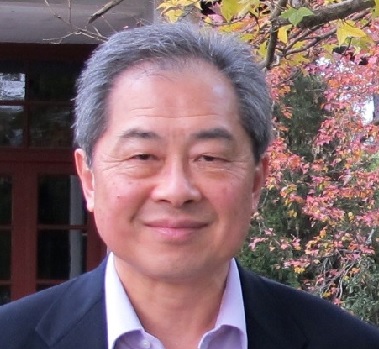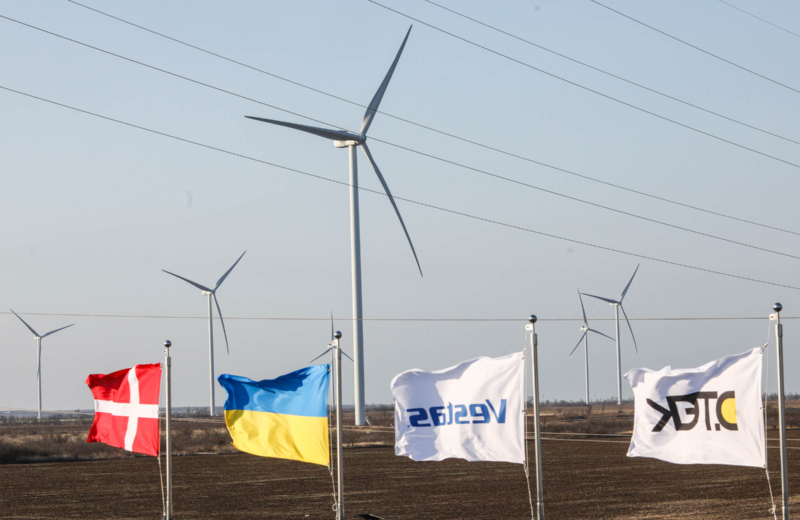Featured Galleries USUBC COLLECTION OF OVER 160 UKRAINE HISTORIC NEWS PHOTOGRAPHS 1918-1997
 Holodomor Posters
Holodomor Posters

Where is Ukrainian energy policy going?

Op-Ed, personal analysis and commentary, Edward Chow
Senior Associate, energy security and climate change program.
Center for Strategic and International Studies (CSIS) in Washington D.C
He serves on the Advisory Council of DTEK
Kyiv Post, Kyiv, Ukraine, April 15, 2020
Washington, D.C. -- The new Cabinet of Ministers of Ukraine was confronted immediately by twin challenges posed by the COVID-19 pandemic of public health emergency and attendant severe negative impact on the economy. This cabinet is so new it still does not have an energy minister. Yet successfully exiting the current crisis and achieving the hoped-for recovery depend on a functioning energy system, especially in electricity, which is a critical building block of modern society.
The previous cabinet vacillated on energy policy, proving that good intentions by themselves do not guarantee sound policymaking or execution. Expertise, organization and competent management are required. In a democracy, a well-articulated and publicly accepted strategy is paramount. The previous government managed somehow to turn a rare success story in private investment in renewable energy, as flawed as it may be, into a prime illustration of why Ukraine is not ready for foreign investment. Six months of negotiations failed to produce a compromise solution acceptable to both Ukrainian authorities and domestic and foreign investors.
In spite of its overwhelming electoral mandate, the ruling party failed to harness unity of purpose among Ukrainian authorities in the government, parliament, regulatory bodies, system operators to build a modern energy market. It actually delayed some of the halting energy reforms agreed to by previous governments under President Petro Poroshenko. Suspicion grew that special interests were behind a return to manual control of energy pricing and distribution. This is a familiar tale to Ukrainians and close observers of the Ukrainian energy scene.
Electricity prices in Ukraine are among the lowest in Europe. Many assets are still in the state’s hands, which accentuates popular demand for low tariffs that in the past benefited politically connected interests more than the truly needy who suffers from poor energy services. European industrial users on average pay 1.5 times higher electricity tariff than those in Ukraine. European households pay 4 times higher for electricity than Ukrainian ones.
For a sector suffering from decades of underinvestment, this is a recipe for disaster. Current crisis conditions of low demand, lower prices, and systemic non-payment expose an electricity system on the verge of bankruptcy. Capricious regulatory decisions, such as the now temporarily reversed permission to import electricity from Russia and Belarus, only exacerbated the perilous situation. Without systemic reform, the sector will remain deprived of new capital for modernization and integration with Europe under its Green Deal, since there is no possibility for reasonable returns on investment.
 Ultimately it is a political decision whether to build a modern energy system, based on a competitive market, transparent regulation, and market pricing or to return to well-worn administrative controls, such as public service obligations and price caps, with predictable market-distorting results. Consequently, the decision is strictly for Ukrainian leaders to make.
Ultimately it is a political decision whether to build a modern energy system, based on a competitive market, transparent regulation, and market pricing or to return to well-worn administrative controls, such as public service obligations and price caps, with predictable market-distorting results. Consequently, the decision is strictly for Ukrainian leaders to make.
Ukrainians have seen enough imitation reforms by the previous government to satisfy the International Monetary Fund, World Bank or other international donors. Ukrainian leaders must own energy reform under a strategy that is understood and accepted by the public and their elected representatives, only then can foreign donors effectively inject financial resources for capacity building and technical advice based on international experience and standards.
Political leaders must also understand that reform is a little like rowing a boat upstream. If you are not advancing, then you are retreating. Determination and building on success are keys to sustaining any reform process. A crisis is not the time to hesitate. Rather it reveals fundamental weaknesses of a long underperforming energy system and the urgency of reform to build a more resilient one.
Of course, not everything can be accomplished instantly. An orderly action plan is needed. The electricity sector is the one that requires immediate attention. Coherent reforms are also needed in oil and gas, refining, distribution, and other areas. The roles of state-owned and controlled enterprises, natural monopolies, and the private sector should be well defined. Privatization should proceed in areas where the government wants to promote more competition. Regulatory bodies must be truly independent of interference out of political expediency and operate under transparent procedures and the rule of law.
President Volodymyr Zelensky can choose to be yet another transitional leader in Ukraine’s long detour toward a market economy or he can be the transformational leader and champion of structural reform, for which he campaigned passionately and successfully. The new energy minister has a historic opportunity to contribute by resetting and explaining the government’s energy strategy and policies and by leading their implementation.
As always, the crucial energy sector is both an ongoing liability and a potential asset in building a stronger Ukraine to defend against its foes, domestic and foreign. The stakes could not be higher. The new energy minister needs to hit the ground running by engaging cooperatively with all stakeholders in the energy economy, including civil society. Prime Minister Denys Shmyhal’s new Economic Development Council is one mechanism for doing so. It is indeed time to get to work.
KYIV POST NOTE: Edward C. Chow is a senior associate in the energy security and climate change program of the Center for Strategic and International Studies (CSIS) in Washington D.C. and is on the advisory council of DTEK, Ukraine’s largest private energy holding company. The firm owned by billionaire oligarch Rinat Akhmetov has assets in coal mining, generation, and distribution of electricity, alternative energy, and natural gas. Chow’s views are strictly his own and do not represent those of the organizations.
USUBC NOTE: DTEK is the member of the of the U.S.-Ukraine Business Council (USUBC). Edward Chow is a Senior Advisor of the U.S.-Ukraine Business Council (USUBC), Wash, D.C., www.USUBC.org











